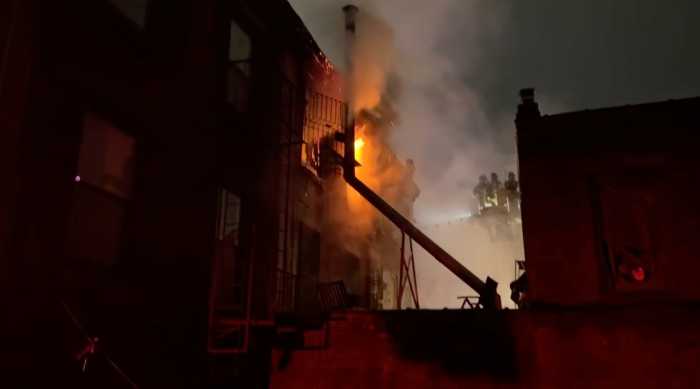Operatic adventures in Boston, Houston, and D.C.
New York opera fans tend to a fairly Lincolncentric view of the world, but America’s other companies regularly provide worthwhile offerings, and it’s always worth checking out the possibilities when planning business or vacation travel. May offered some definite treats around the country.
Bostonians heard two works that three decades ago proved late-career Beverly Sills vehicles. “Lucrezia Borgia” has seen only one major U.S. staging—Minnesota Opera’s with Irini Tsirakidis (2004)—since the dim mid ‘70s mounting led by Leyla Gencer (Dallas) and Sills (NYCO). Jay Lesenger’s straightforward production for Opera Boston (May 2) held the audience captivated, reaffirming the power of Hugo’s chiaroscuro of pathos, horror, and grim humor wedded to Donizetti’s imposing, often forward-looking score. Gil Rose led a satisfyingly taut reading orchestrally, though he might have imposed more discretion on his principals’ high interpolations.
Steven Capone’s sets used well-chosen architectural details evoking Venice and Ferrara; Nancy Leary’s costumes daringly mixed period and contemporary—even punk—elements, so that (for once!) Orsini and Gennaro’s band of soldiers of fortune emerged a desperate, dangerous lot. The Orsini of versatile Christine Abraham—a mezzo fielding bright soprano timbre—proved the best defined, most energetic character onstage; her stylishly ornamented singing cleanly and pointedly phrased. A suitably dashing Gennaro, Justin Vickers furnished good line and top notes but rather bleaty timbre. Relishing Alfonso’s villainy, Bert Johnson exhibited an attractive, sizable bass, a touch tremulous. Barbara Quintiliani’s Lucrezia confirmed genuine vocal promise as a full, rich spinto and showed some fiery Italian temperament. Some stylistic and technical flaws remain—hit-or-miss interpolated acuti, merely indicated trills and an underdeveloped sense of sculpting words onto a bel canto line.
At the nearby Shubert Theatre, Boston Lyric Opera was playing “Thaïs” (May 3) in the much-criticized Renaud Doucet /André Barbe production created for St. Louis around Mary Dunleavy. I enjoyed Barbe’s Beardsley-detailed set with eye motifs and circusy Alexandrian costumes as well as Doucet’s occasionally stylized direction. Would one want a “naturalistic” “Thaïs?” Guy Simard’s extremely skilled lighting proved evocatively otherworldly.
Steuart Bedford served Massenet with affection and grace in the pit. An attractive young woman with an excellent figure, Kelly Kaduce has performed highly effectively as Gretel, Mimì and Birdie (Regina); here she didn’t quite convince as Act One’s legendary hedonistic courtesan, seeming altogether too sensible. However, when Thaïs’ doubts arose, her dramatic gifts came to the fore—she limned the character’s transition most credibly and was quite moving in her final religious exaltation. Not especially memorable of timbre, Kaduce’s soprano is finely knit and musically used, with remarkable facility on high, up to some superb Ds. Canadian baritone James Westman (Athanäel) offered intense, detailed acting, a simmering sexy presence—despite a caveman-ish costume—and a strong voice used with style and dynamic variety. Tenor Mark Thomsen made a solid Nicias, ardent when needed; Stephanie Chigas a dignified, richly voiced Albine.
Houston witnessed Graham Vick’s persuasive production and Paul Brown’s remarkable sets and Fascist era costumes for “L’incoronazione di Poppea” (May 12), loudly cheering the four stars assuming their Monteverdi roles for the first time. Frederica von Stade, took on Ottavia 30 years after her classic Penelope with class, immaculate style and dramatic acumen: winning sympathy, but also a bloodthirsty player in the Capitoline power games. Her voice remains full of expressivity; the “Addio Roma” was shattering. Susan Graham sang Poppea with ravishing tone and seductive phrasing, triumphed over an unflattering coiffure—a splendid assumption that should be seen elsewhere. So must the assured, verbally incisive Nerone of William Burden, negotiating the tricky tessitura as skillfully as any tenor since Éric Tappy and acting wonderfully. (One wonders how Houston, the center of Bush’s financial support, took to Burden’s portrait of a spoiled rich tyrant untroubled by reflection or conscience, contemptuous of Senate and People alike, and governing by cronyism, lies, and threat of torture.) A sexy sportsman, this Emperor also donned full “Cage aux Folles” scarlet couture robes for his duet with Lucano, the admirable Norman Reinhardt.
Harpsichords theorbos, a baroque guitar, and a viola da gamba augmented William Lacey’s reduced contemporary orchestra in Alan Curtis’ edition. Lacey generally obtained fine playing from his forces. The prologue’s deletion accentuated the production’s focus on Ottone—the superb Nathan Gunn—whom Vick views as the audience’s lens on the action—which works well until his exile. Though it was odd to have neither Nerone nor Ottone a countertenor, Gunn furnished passionate intensity, excellent musicianship and beautiful dynamic gradation.
Seneca was Raymond Aceto, a first-rate bass vocally—though lacking sepulchral low notes—but not very characterful. Joseph Evans’ remarkably voiced Arnalta, styled as Dame Edna Everage but enacted with sincerity and feeling, won cheers. Drusilla was well sung and sympathetically portrayed by Heidi Stober.
Washington’s “L’Italiana in Algeri” (May 21) utilized the Met’s historic Ponnelle production; some of the loucher jokes and Isabella’s costumes should be consigned to history, but the sets and storytelling remain valid and enjoyable. Riccardo Frizza paced a crisp reading with a what can truly be termed a world-class quintet—Olga Borodina’s heroine—slightly edgy on top, but showing beautiful sound and much more interpretive energy than usual—plus Ildar Abdrazakov (Mustafà), Juan Diego Flórez (Lindoro), Bruno de Simone (Taddeo) and Lyubov Petrova (Elvira), all pretty much ideal.
David Shengold (shengold@yahoo.com) writes about opera for many venues.
gaycitynews.com


































